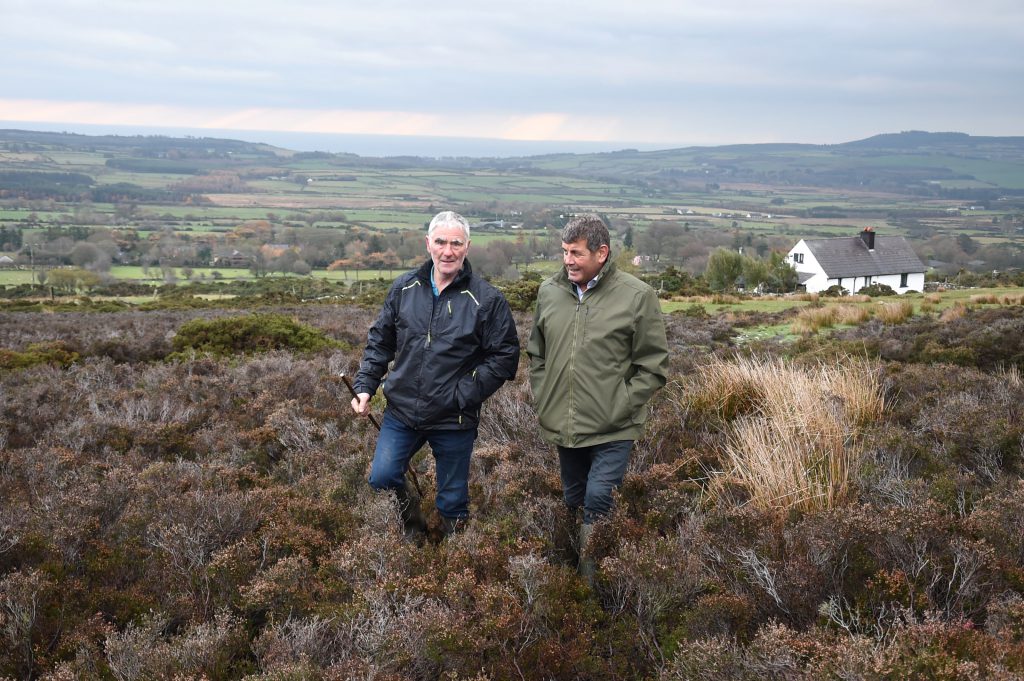The ‘Sustainable Uplands Agriculture-environment Scheme (SUAS)’ Pilot Project was officially launched by Wicklow Uplands Council this week.
The €1.95 million project is designed to assist both commonage groups and individual farmers across the Wicklow and Dublin uplands, according to the council.
Presentations were given by a number of guests, including Minister of State for Food, Forestry and Horticulture, Andrew Doyle, and chief executive of The Heritage Council, Michael Starrett.
The key objective of the five-year pilot, which is the first of its kind in Ireland, is to develop practical and innovative solutions that will address the complex agricultural, environmental and socio-economic challenges associated with the land management of commonages and hill farms in the Wicklow/Dublin uplands.
This is recognised by its designation of a substantial area of the uplands region as a Special Area of Conservation (SAC) and Special Protection Area (SPA).
The project has evolved following several years of extensive study which identified the poor-to-bad conservation status of the habitat found in the Wicklow/ Dublin uplands.
The study also found a decline in the use of the uplands for livestock grazing and the need for specific support for upland farmers.
Farmer participants in the programme will decide themselves what measures they would like to carry out to improve the habitat condition.
Payments will be made for time spent carrying out the activities in line with the agreed management plan.
Following the announcement of the project earlier this year, a selection process resulted in three commonage groups and one individual farmer chosen to participate in the initial roll-out of the project.
An announcement for further expressions of interest is due in 2019.
The project has created a framework that consists of a facilitated process to assist the participating groups to form their own constitution and to establish as a formal structure.
Declan Byrne, project manager of the SUAS project, commented on the scheme.
“The SUAS project has the potential to change the way agri-environmental schemes operate on the commonages across the country and once completed, will offer a framework built around a collective and formalised structure for other groups to adapt.
“The project appropriately places the farmers at the centre of developing management plans for upland habitats areas, as they will be the ones who will be doing the work on the ground,” he said.

